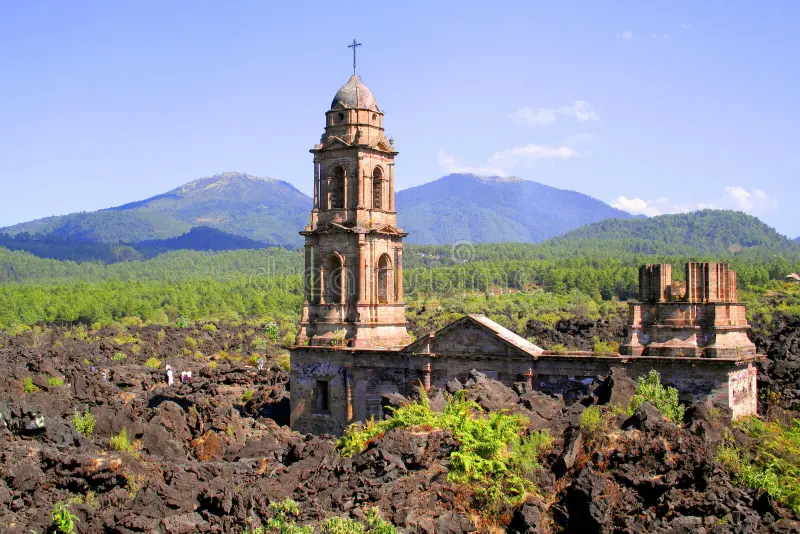Introduction to Parangaricutirimicuaro
“Parangaricutirimicuaro” is a word known for its complexity and fun assignment as a tongue-tornado. However, past its playful nature, it holds a deeper cultural and historical importance. This particular phrase references a real location in Mexico, positioned inside the nation of Michoacán, close to the well-known Parícutin volcano. The phrase’s origin and recognition in Mexican and Latin American cultures make it a captivating topic that goes beyond its whimsical sound.
Origins and Meaning of Parangaricutirimicuaro
The word “Parangaricutirimicuaro” comes from the name of a village near the Parícutin volcano in Michoacán. Its roots are inside the Purépecha language, an indigenous tongue spoken by way of the Purépecha people of this area. In a few translations, “Parangaricutirimicuaro” is assumed to intend “location near Parícutin,” without delay linking it to the Parícutin volcano, one of the youngest and most studied volcanoes inside the global. While the village now not exists, swallowed by using volcanic lava flows in 1943, its name lives on as a image of Mexican folklore and history.
The Parícutin Volcano and its Connection to the Village
In 1943, a enormous occasion befell whilst the Parícutin volcano erupted all of sudden in a farmer’s cornfield, taking pictures the eye of geologists and locals alike. The eruption, which persisted for 9 years, is a number of the few volcanic eruptions in recorded records where scientists ought to take a look at the entire lifespan of a volcano. The eruption of Parícutin in the end buried the close by metropolis of Parangaricutirimicuaro, leaving most effective the church tower seen above the lava. The story of this volcanic eruption and its effect on Parangaricutirimicuaro helped etch the village’s name into Mexican lore and contributed to its vicinity in popular subculture.
Parangaricutirimicuaro: The Ultimate Spanish Tongue-Twister
One of the reasons Parangaricutirimicuaro became widely recognized out of doors its geographical and historic context is because of its role inside the famous Spanish tongue-tornado:
“El pueblo de Parangaricutirimícuaro se quiere desparangaricutirimicuarizar, el que lo desparangaricutirimicuarizare será un gran desparangaricutirimicuarizador.”
The sentence kind of translates to, “The city of Parangaricutirimícuaro wants to turn out to be un-Parangaricutirimicuaro-ized; whoever can un-Parangaricutirimicuaro-ize it will be a notable un-Parangaricutirimicuaro-izer.” This playful twist on words has made it a staple in Latin American tradition and is usually utilized in language video games to check one’s fluency, dexterity, and sense of humor.
Cultural Influence of Parangaricutirimicuaro in Music and Media
The tongue-twister’s catchy nature has made it a famous reference in Mexican tune, media, and even cartoons. For example, traditional Mexican songs include the word as a playful detail, celebrating the challenge of saying it effectively. Comedic skits and television show also reference the tongue-tornado, with characters humorously trying to mention it again and again, frequently failing in exaggeratedly funny methods. In this experience, Parangaricutirimicuaro has transcended its original geographical importance and become a liked fixture in Latin American entertainment and popular way of life.
The Role of Parangaricutirimicuaro in Linguistics and Language Learning
For native Spanish speakers, mastering this tongue-tornado may be a badge of delight, showcasing an ability to navigate complicated syllables comfortably. Linguists view terms just like the Parangaricutirimicuaro tongue-tornado as treasured equipment for understanding speech patterns, language processing, and fluency. Language teachers use the phrase as a amusing manner to assist students improve pronunciation, rhythm, and self assurance in Spanish. The exercise of tackling a protracted, complicated word with fast syllables encourages language newcomers to consciousness on enunciation, making Parangaricutirimicuaro both a cultural and academic phenomenon.
Conclusion: Parangaricutirimicuaro as a Symbol of Mexican Folklore and Identity
Parangaricutirimicuaro serves as more than just a hard work; it’s a symbol of resilience, humor, and identification for Mexican lifestyle. The legacy of this phrase, from its historic roots in Michoacán to its adoption as a famous tongue-twister, highlights the richness of Mexican folklore and the manner that language and testimonies bear over generations. Parangaricutirimicuaro encapsulates the spirit of a region impacted by herbal phenomena and the pleasure of language’s playful complexities, resonating across borders and generations as a testament to cultural heritage.


